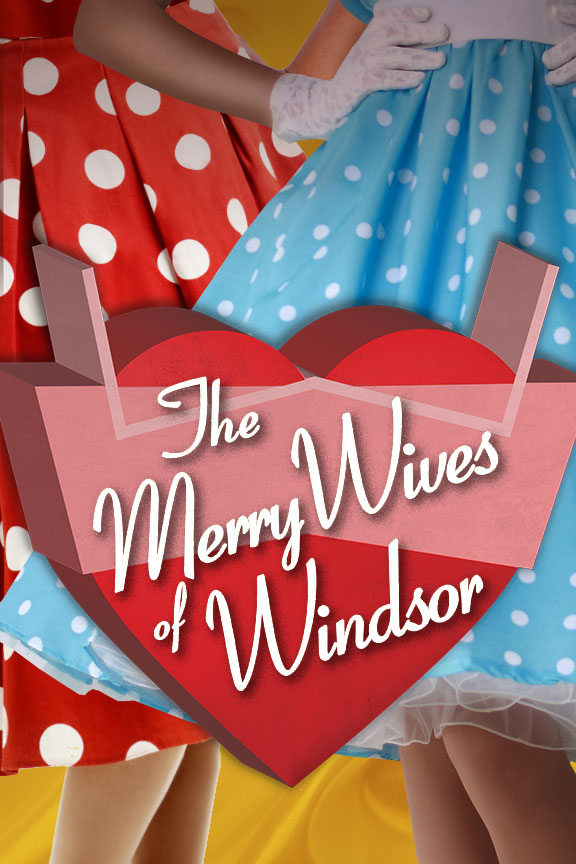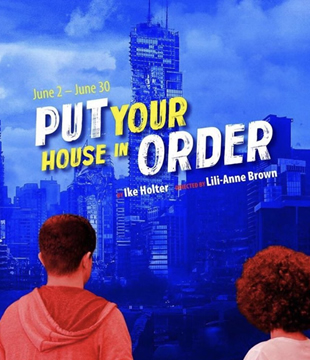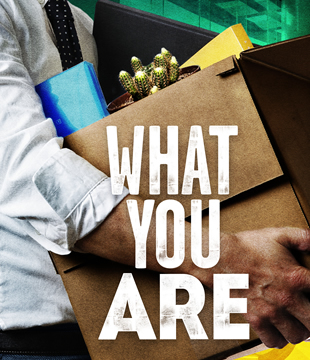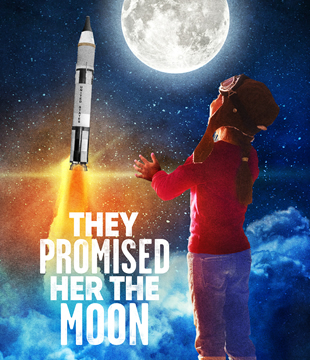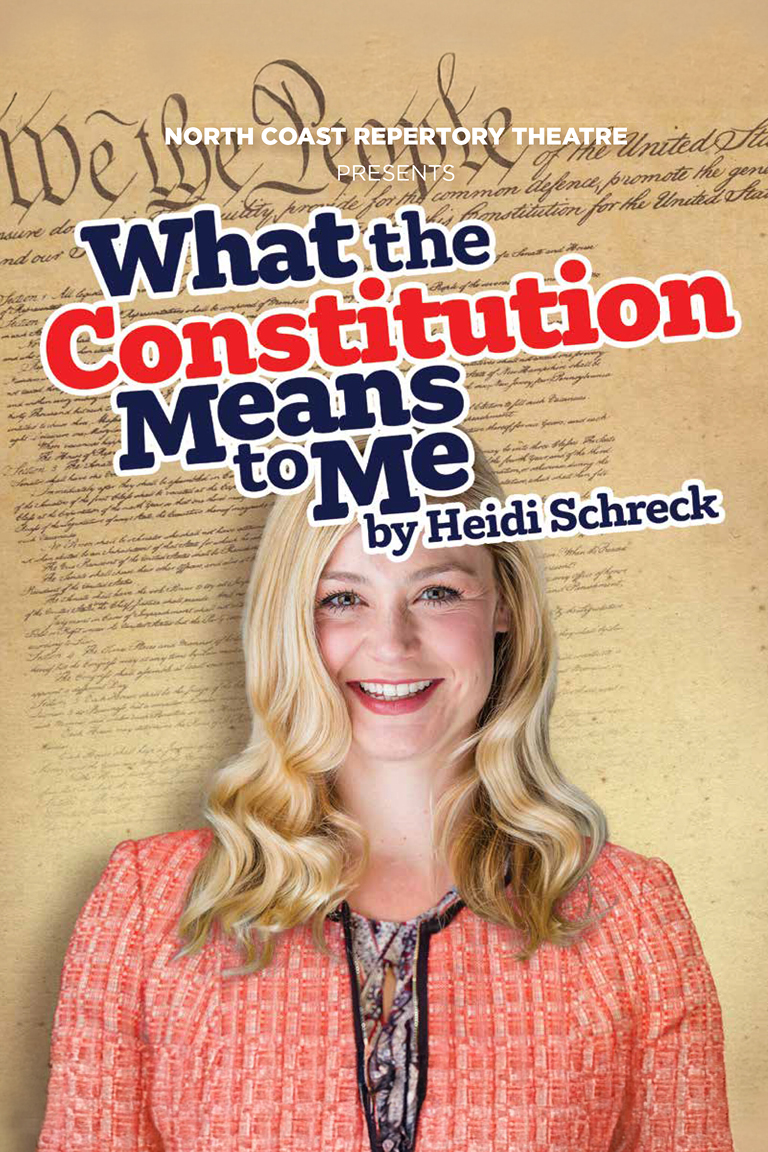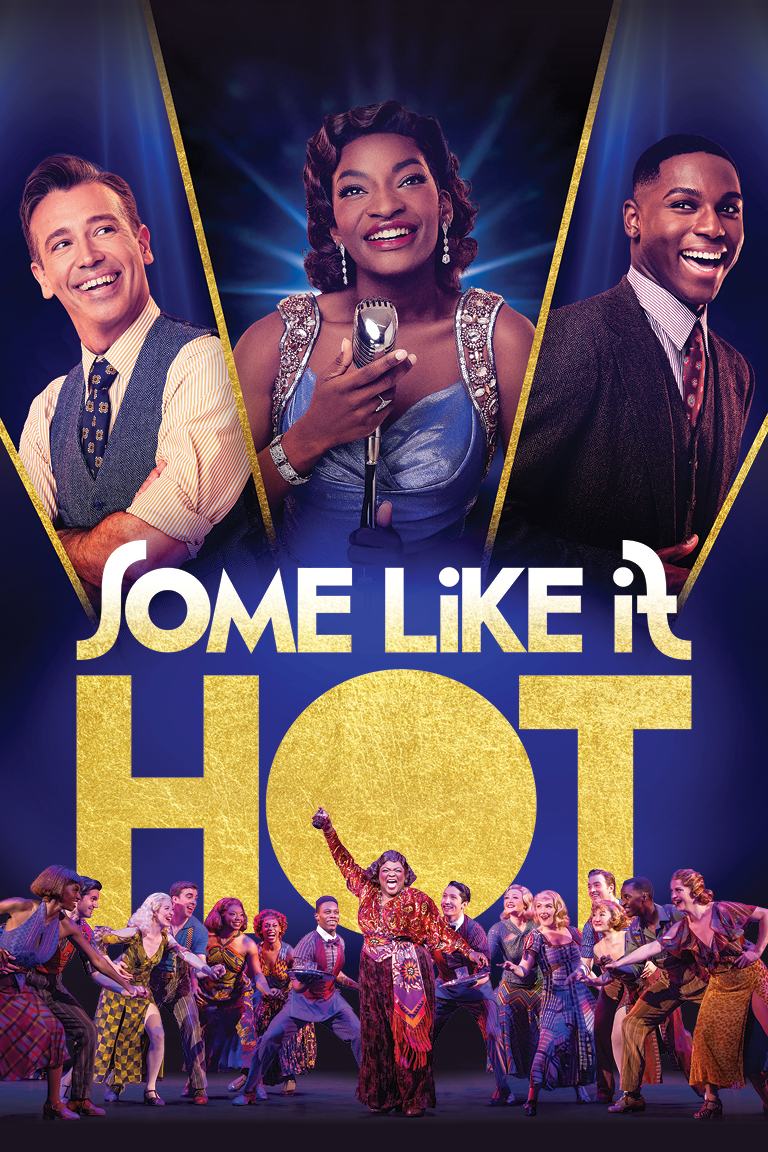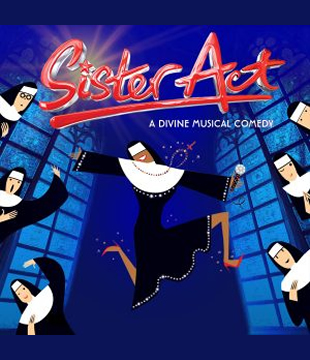Setting: The living room. Tony sits on one couch engrossed in the last pages of the final book in Adrian Tchaikovsky’s “Final Architecture” series (which he highly recommends!). Michael enters from the kitchen, holding a bowl of fried rice, and sits on the 2nd couch opposite him.
Michael: Should we talk about The Merry Wives of Windsor?
Tony: (begrudgingly closing the book) Ok. I guess this is the “Merry Husbands of San Diego” talking about the “Merry Wives of Windsor” (Tony cracks himself up. Michael responds by not responding) What did you think about it?
Michael: I liked it.
Tony: (rolling his eyes) Its a review. You might have to be more specific.
Michael: (smiling) I really liked the choice of setting. The 1950’s TV theme felt good… familiar. Made it feel more relatable.
Tony: (putting the book aside and warming to the conversation) Yea, I agree. And the 50’s is a smart choice because its relatable, like you said, and it feels “modern” but also still feels “old”… maybe “classic” is a better way of saying it. The 50’s is 70 years ago, so you get the best of both worlds. It part of the audience’s world, but its also not. Like Shakespeare, just less so. It still feels classic, but the gulf isn’t so far for the audience to cross.
Michael: There’s also a big cast and a lot of plot, and I think the costumes and the 50’s characters helped me identify the people. Like the innkeeper, for example. Its a diner and she’s the hostess, and she’s dressed like a hostess so we know right away who and what she is.
Tony: (realizing something for the first time) Yea, I guess I picked up on that but wasn’t thinking about it until now! Like the Wives, for instance, had an obvious “Lucy & Ethel” thing going… I recognized that while I was watching, but I guess I didn’t think, at the time, about how much that accomplished. Once I had “Lucy and Ethel” in my head, I have these semi-subconscious expectations that the characters are going to act like Lucy and Ethel, and that there are going to be similar antics, all of which, of course, is true. And the same is true for the other characters. The pipe-smoking dad, the nosey neighbor… they’re archetypes, and the audience gets that right away even if we don’t realize we’re getting it.
Michael: (playfully mocking) Ooooh, “archetypes”…. fancy word.
(Tony shakes his head, taking mock offense)
Michael: I also went to Barry Edelstein’s “Thinking Shakespeare” on Saturday…
Tony: (unable to resist the comeback) Now who’s “fancy”?
Michael: (smiling, but continuing uninterrupted) …and that was really helpful. One of the things he suggested about Shakespeare and language is to ‘listen for the verbs”. The verbs are where all the action is and its where the actors can convey a lot of intention and emotion. It made me listen differently and I think I got a lot more out of the experience.
Tony: Speaking of language, they replaced a lot of the language with 1950’s slang. I thought that was really smart too.
Michael: Was it a lot?
Tony: (thinking) I mean, it wasn’t like they modernized the whole play, but there were definitely a lot of replacements sprinkled throughout. Kinda like the choice of setting and the (he exaggerates, pointedly) archetypes, they allow the audience to understand what’s being said and relate but, because the slang is antiquated, it doesn’t lose the “period” feel. And that’s especially smart with a comedy. If the language creates a barrier, the jokes can’t land. Sprinkling in more accessible words at the right moment really helps the comedy. Enhanced it, even, because the joke itself is funny but so is this modern word itself.
Michael: (nodding in agreement) Mmmm
Tony: (deliberately using another “fancy” word) Anachronistic.
(They pause, savoring the silliness)
Tony: What did you think of the Doctor and the Priest?
Michael: I really liked them! We’ve seen Jesse Perez in a lot of shows. He’s so versatile! It was fun to see him in such a comically over-the top role. Both of the accents they chose were very think, but they made it work.
Tony: I agree. During the Doctor’s first few lines I thought, “Wow, I hope he doesn’t say anything that’s important to the plot!”. But then almost immediately I realized that even if I could’t understand a word of it (which wasn’t the case) it wouldn’t really matter. His acting was so good that I’d get the joke anyway… it was more funny, even.
(A Pause)
Michael: Anything else?
Tony: (Glancing at the book he’s eager to finish) Just a big shout out to all the actors for really leaning into the 50’s TV character theme in a really brilliant way. They all created characters that were recognizable as references without crossing over into just doing an impression. Even the bit characters that could have just blended into the scenery made some choices that really added to the comedy and sense of choreography.
Michael: (Equally eager to finish his fried rice) I agree. Great show!
